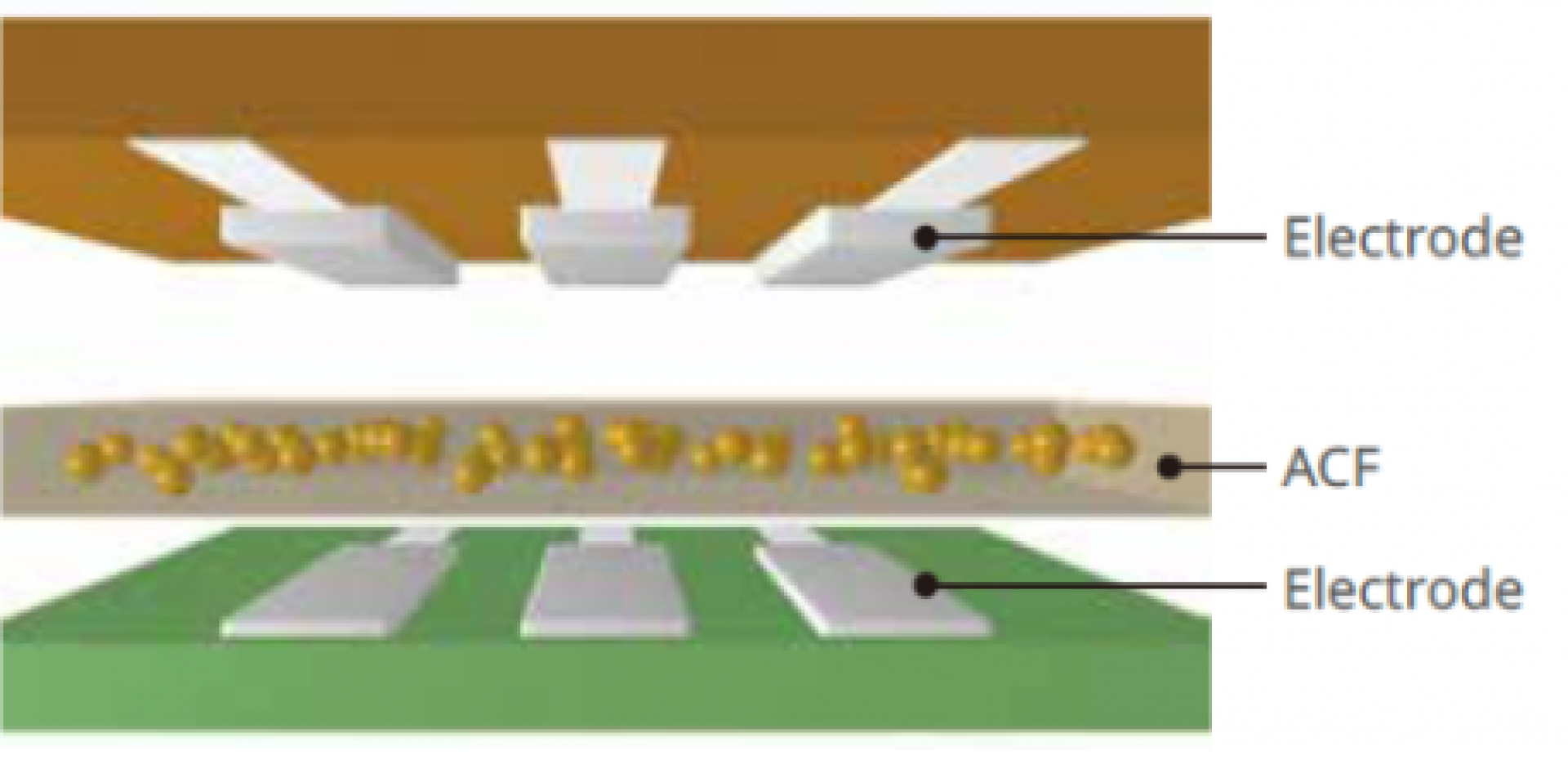Thermoplastic ACF

Thermoplastic Anisotropic Conductive Film (ACF) is a specific type of ACF that utilizes a thermoplastic polymer matrix, which softens when heated and hardens when cooled. Unlike thermosetting ACF, which cures permanently, thermoplastic ACF remains reworkable due to its ability to soften under heat and solidify when cooled, making it useful in applications where reprocessing or repairs may be necessary.
Key Characteristics:
Reworkability: One of the major advantages of thermoplastic ACF is its reworkability. Since it can be heated, softened, and repositioned, it is useful for applications that require flexibility during assembly or when repairs need to be made after bonding.
Bonding Process: Like other types of ACF, thermoplastic ACF creates electrical connections through conductive particles embedded in the film. When the film is heated during the bonding process, the thermoplastic matrix softens, allowing conductive particles to establish connections between the two surfaces. Once cooled, the matrix hardens, securing both the mechanical and electrical connections.
Applications:
Reworkable Electronics: Thermoplastic ACF is ideal for electronics where there may be a need for future repairs or adjustments, such as in prototypes or components requiring testing.
Displays: Its used in connecting ICs (integrated circuits) to flat panel displays like OLEDs and LCDs, offering flexibility during the assembly process.
Wearable Electronics: The flexible nature of thermoplastic ACF is advantageous for wearable devices, where components need to be both lightweight and capable of withstanding repeated mechanical stress.
Advantages:
Reworkable: Allows multiple heating and cooling cycles for adjustments and repairs.
Flexible Bonding: Suitable for bonding flexible circuits to rigid or flexible substrates.
Durable: Provides good electrical and mechanical stability once bonded, with resilience in applications where flexing occurs.
Challenges:
Precise Temperature Control: The application process requires careful control of heat and pressure to ensure proper bonding without damaging components.
Long-Term Stability: While it offers reworkability, thermoplastic ACF may not provide the same long-term stability as thermosetting versions in certain high-stress environments.
Thermoplastic ACF is gaining popularity in advanced electronics manufacturing due to its reworkable properties, offering greater flexibility in production and repairs while ensuring reliable electrical connections in high-density designs.


